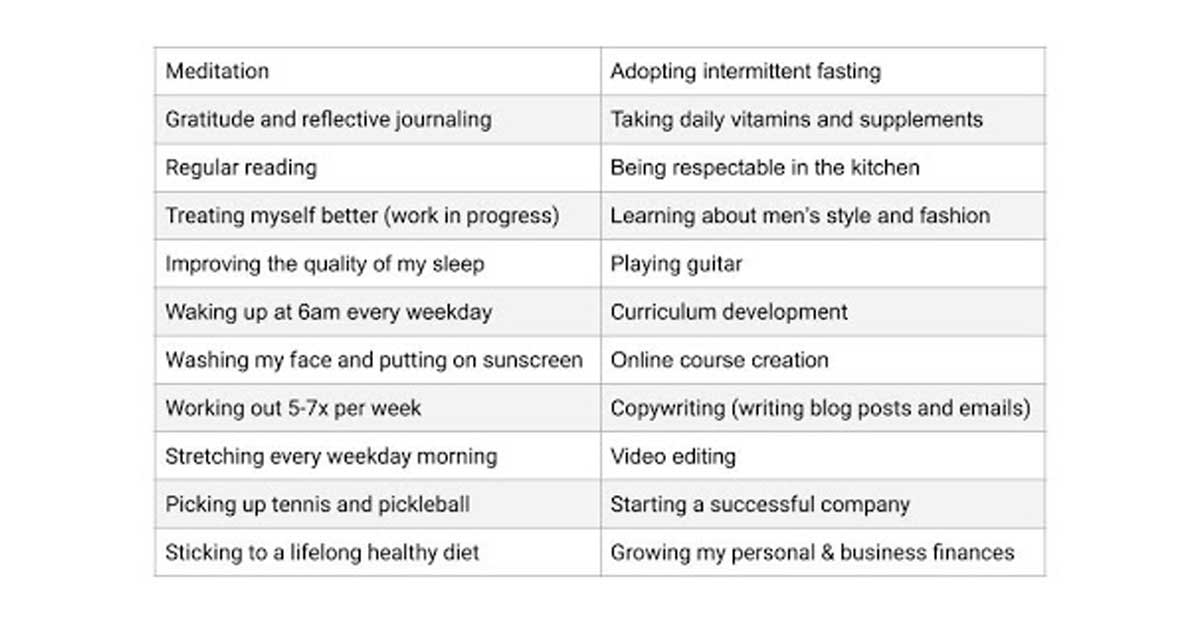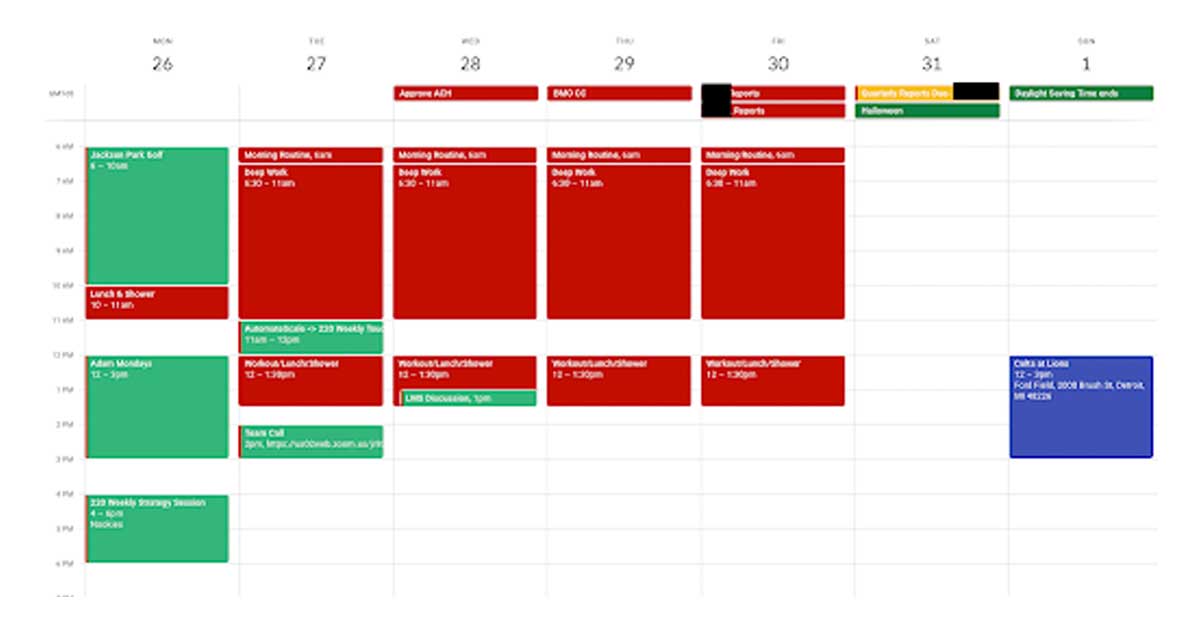This lack of structure is a simulation many young people should expect for their future jobs.
With companies successfully operating with employees at home, and continuing advances in technology, more work will continue to get done remotely. This means instead of being evaluated based on the time they put in or when they do their work, their performance will be measured by the tangible results they produce—and they won't get a textbook or step-by-step instructions on how to get there.
Because this is such a stark contrast to traditional education, plenty of youth haven't had to learn the self-management skills they need to be successful. What they need is a repeatable system that gives them the confidence to motivate, manage, and depend on themselves—especially through obstacles and uncertainty.
As an entrepreneur with no boss to respond to, I've had to study, test, and refine my processes for getting things done and picking up new skills. It's been an ugly, fun, frustrating and worthwhile journey. In the past few years alone, this system has helped me add the skills and habits below to my regular routines.

I'm sharing these as evidence this system works—and I want it to work for your youth. Here are five steps that have helped me systematically build new skills and achieve my most important goals:
1. Find your "Why."

Whether it's a big overarching goal or a micro-skill you want to learn, it's important to know why it's important to you. To do that, you have to know yourself and be willing to go several layers deep with the question: "Why is this important to me?"
Otherwise, you won't have the motivation to ignore your favorite show, stay off social media, or overcome unavoidable obstacles and setbacks. For example, when I asked myself why gratitude journaling was important to me:
- "Although I'm generally a happy person, I can easily forget to be grateful for everything I have. Why is that important?"
- "When I forget to be grateful, my positive attitude is fragile and it's easier to get frustrated. Why is that important?"
- "Because life is too short to stay frustrated. Every day is a gift, and starting my day off with gratitude will put me in the best possible state of mind to work, be kind and remember what's important."
2. Set measurable goals.

When I ask young people if they know how to set measurable goals, almost all of them say "Yes." But when I ask them to set their own goals, 99% of them are not measurable. You can't manage yourself without measuring your own performance, so youth have to be able to set goals the right way:
1. Specific: Don't hide behind ambiguity.
2. Measurable: Typically needs to be a number.
3. Deadline: Has to have a "measure-by" date.
When I decided I wanted to become a morning person, I set the following goal:
1. Specific: Wake up at 6 a.m.
2. Measurable: 5 times a week.
3. Deadline: By March 31, 2019.
Or when I realized I had gotten stagnant in my guitar playing:
1. Specific: Play the song XO.
2. Measurable: Without mistakes.
3. Deadline: By July 30, 2020.
3. Identify critical sub-steps.

Once youth set their goals, they need to break those goals down into digestible sub-steps. These are intermittent goals that need to be completed in order to accomplish the measurable goal. Without these sub-steps, it's hard to know where to start and can make these goals feel overwhelming—which ultimately leads to giving up.
When I decided to revamp my wardrobe and improve my personal style, I identified the following critical steps:
- Complete an online course on men's fashion.
- Clean out my closet and donate items I no longer wear or that don't fit properly.
- Allocate savings toward buying clothing needed for a basic capsule wardrobe.
- Purchase those items.
4. Manage a weekly calendar.

The next step is to incorporate those sub-steps into a weekly calendar.
One thing that makes me cringe is when I ask youth about their schedule and they look back at their parent, teacher, or program manager for help because they don't know. I wasn't the poster child for managing my own calendar when I was their age, but now that I know the benefits, I wish I started sooner.
When young people start managing their own calendar, they can operate with less structure and don't need adults telling them what to do. And if they want to accomplish these meaningful goals, they also need to build them into their calendar.
As you can see in my calendar above, I've already got most of the week of October 26, 2020, planned out—and every week before and after that. I've already made time for my most important activities.
I've carved out the first 30 minutes of each morning for my morning routine (where I built the habits of meditating, journaling, and stretching) and deep, focused work (where I honed my copywriting, curriculum development, and online course creation skills).
During these times, I try not to check email, get on social media or read news. For young people, having these kinds of distraction-free time blocks for school work and passion skill-building is crucial to getting things done well and maximizing free time.
5. Execute daily tasks and routines.

And finally, it comes down to whether or not you can execute your tasks and routines each day. Completing steps 1 – 4 makes this a lot easier, but even the perfect plan can't replace putting one foot in front of the other and doing the dirty work required for success. Regardless of what youth are ultimately trying to achieve, they need to master a few skills:
- Execute their scheduled routines and work times when no one is watching.
- Manage a daily to-do list—planner, agenda, digital.
- Manage a "can't do this now, but need to do it later" list or system.
- Say "no" when opportunities that don't align with their most important goals would interfere with their daily commitments.
- Get seven to eight hours of sleep.
I've experimented a lot with these, but right now the following are working well for me:
- A pen-and-paper to-do list.
- Trello for my "can't do this now, but need to do it later" system.
- Calendly to only book meetings outside of my pre-scheduled meetings and routines.
- Going to sleep between 10:30 and 11 p.m.
In short, this system relies on finding your why, setting measurable goals, and using your calendar and daily routines to knock out the critical steps it takes to achieve those goals. I can't wait for you to see it work for your young people!
Looking for some worksheets to help youth organize this system? Check out our free Three 2 Thrive worksheets you can use with youth and staff to help them thrive through this new normal of education and afterschool.
Matthew Moheban is an NAA Advocate member and the Co-Founder of 220, which creates online courses to help students succeed in the real world.
Main photo courtesy of @windows for unsplash.com.




